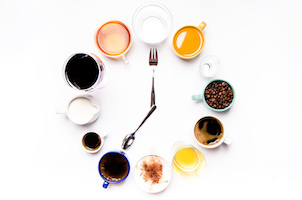 A wee nightcap before bed or a glass or two of wine with dinner feels like a lovely way to wind down some days – but what impact does it have on your sleep? There some evidence that drinking before bed can be disruptive to a good night’s sleep. Along with avoiding caffeine, keeping an eye on your alcohol intake is on the list of things to do to improve your evening rest.
A wee nightcap before bed or a glass or two of wine with dinner feels like a lovely way to wind down some days – but what impact does it have on your sleep? There some evidence that drinking before bed can be disruptive to a good night’s sleep. Along with avoiding caffeine, keeping an eye on your alcohol intake is on the list of things to do to improve your evening rest.
So, is a glass or two really going to cause that much disturbance? Fortunately, light alcohol consumption shouldn’t cause too many disturbances, but if you are regularly having trouble sleeping, alcohol could be a contributing factor.
It definitely makes it easier for one to drift off to sleep, but it can also make it harder to stay asleep in the middle of the night.
Our brains actually “turn off” more quickly after a couple of drinks. The problem comes when alcohol interferes with our natural sleep cycles; it can suppress rapid eye movement (REM) sleep. REM is the lightest stage of sleep. It is also the stage when we dream and when a key part of the learning process happens that makes long-term memories “stick.” We instead drop into the deeper ‘slow wave’ sleep early in the night, which can cause wakefulness in the middle of the night.
Without the benefit of a natural sleep cycle, you’re more likely to be drowsy, irritable and headachy the next day.
Once your body has processed the alcohol and eliminated it from your body, it will ‘rebound’ back to try and recover the lost REM sleep. As this is the lighter stage, you’re likely to wake up in the middle of the night.
Experts suggest that the effect of alcohol on your sleep depends on your blood alcohol content (BAC) when you go to bed. A level of about 0.04 at bedtime (the old drink-driving limit in New Zealand) can start to cause disturbance in an average-sized person. It’s also worth remembering that alcohol affects women differently than men, because women have fewer of the gut enzymes that process alcohol than men do.
To counteract these effects, consider the following;
Try to taper off drinking later in the evening. By all means enjoy happy hour and wine with dinner, but ease off after that, so your body can metabolise some of the alcohol for a few hours before bed.
Eat something. Food delays how quickly your body absorbs alcohol. Alternate alcoholic drinks with water to keep yourself hydrated.
Alcohol can disrupt your sleep, but not markedly in moderate amounts with some ‘dry time’ before bed. It’s really up to you – sometimes the extra glass is worth a slightly unsettled night; other times, a bit of self control is more advisable. Cheers!









Join the Discussion
Type out your comment here:
You must be logged in to post a comment.